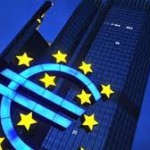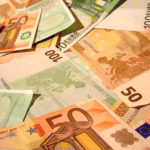 The euro fell from previously registered 23-month highs against the US dollar and preserved daily losses, following the release of disappointing German business climate data by the IFO institute and after another report showed that durable goods orders in the United States gained more than expected in September.
The euro fell from previously registered 23-month highs against the US dollar and preserved daily losses, following the release of disappointing German business climate data by the IFO institute and after another report showed that durable goods orders in the United States gained more than expected in September.
EUR/USD slipped to a session low at 1.3775 at 12:15 GMT, after which consolidation followed at 1.3784, still losing 0.12% for the day. Support was likely to be received at October 24th low, 1.3764, while resistance was to be met at current session high and also highest point since November 9th 2011, 1.3833.
A series of non-optimistic data came out of the Euro zone on Friday, which caused the euro to lose strength against the greenback. The index of business climate in Germany decreased unexpectedly in October , according to data by the IFO institute. The index dropped to a reading of 107.4 in October from 107.7 in the preceding month, while analysts had projected an advance to 108.0. The sub-index of current assessment, which provides information about whether responding companies have been optimistic or pessimistic about current business conditions in the country, ticked down to 111.3 in October from 111.4 in September. Experts had anticipated that the index will remain without change in October. The sub-index of economic expectations, which reflects economic prospects during the upcoming six months, also dropped in October, reaching a value of 103.6, after a month ago its stood at 104.2. Forecasts pointed an increase to 104.5.
Private sector loans in the Euro zone continued to decrease in September, which implied that recovery in the region might remain frail, despite the most recent signs of revival. According to data by the European Central Bank (ECB), private sector lending decreased 1.9% in September on annual basis, following the 2.0% drop in August.
In addition to these data points, the European Central Bank announced earlier today that a total amount of 1.759 billion EUR is expected to be transferred back during the next week by banks participated in ECBs 2 three-year LTRO (longer-term refinancing operations). Expectations pointed that the transferred amount will reach almost 3 billion EUR.
In the mean time, durable goods orders in the United States increased at the fastest pace in three months in September, as higher demand for commercial and military aircraft neutralized the drop in business equipment. Orders rose 3.7% in September, exceeding preliminary estimates of a 2.0% increase and following the revised up 0.2% gain registered in August. Durable goods orders excluding transportation equipment dipped 0.1% in September, following the revised 0.4% drop in August (0.1% drop previously), confounding expectations of a 0.5% gain. Durable goods orders excluding defense rose 3.2% in September in line with projections after the 0.6% climb a month ago.
Demand for non-defense capital goods, excluding aircraft dropped in September, after a 0.4% gain in August and a 3.5% decline in July. Such orders are usually considered a proxy for future business investment in computers and electronics. Shipments of such products, a measure used to evaluate nations Gross Domestic Product, decreased 0.2% in September, following the 1.1% rise in the preceding month. Sales decreased 2.9% during the third quarter of this year on annual basis, compared with another 0.9% drop at the end of the second quarter.
Demand for motor vehicles, on the other hand, has been supported, with sales of cars and light trucks reaching a 15.2 million annualized rate in September, after in August sales climbed at the fastest annualized pace since 2007, according to data by Ward’s Automotive Group.
“Investment spending has been really soft this year,” Joshua Dennerlein, an economist at Bank of America Corp. in New York, said before the report, cited by Bloomberg. “You’d expect to see rip-roaring investment because the groundwork is there, but you keep getting these uncertainty shocks, these policy shocks. People are going to hold off on investment because they’re not really sure.”
Elsewhere, the euro was steady against the pound, with EUR/GBP cross ticking up a mere 0.02% to trade at 0.8522. EUR/JPY pair was also little changed, dipping 0.01% on a daily basis to trade at 134.26.





